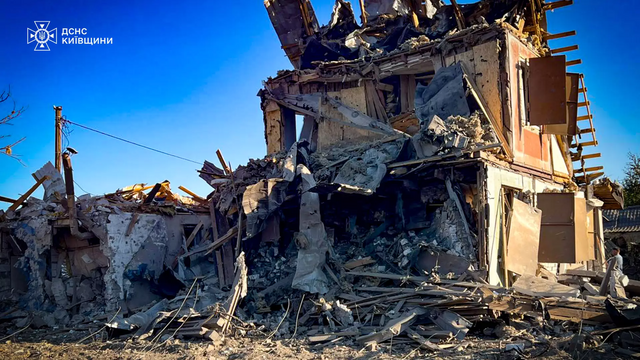On Sunday, Russian missiles hit a shopping mall and an events complex in Kharkiv, Ukraine's northeastern city, leaving at least 47 people injured, including five children. This attack came on the heels of a major Ukrainian drone assault on Russian targets, marking a significant escalation in the ongoing conflict between the two nations.
The missile strikes on Kharkiv caused extensive damage and triggered a chaotic scene as rescue workers and volunteers rushed to aid the injured. Shattered glass and debris littered the area, prompting many residents to seek refuge in a nearby metro station. Ukrainian President Volodymyr Zelensky has since used this incident to renew his appeal to Western allies for more advanced weaponry, emphasizing the urgent need for increased support.
Earlier in the day, Russia reported that Kyiv had launched one of the largest drone offensives since the full-scale invasion began. The Ukrainian drones targeted key infrastructure, including power plants and an oil refinery, in what Russia described as a significant escalation. Moscow's Defense Ministry claimed it intercepted and destroyed 158 Ukrainian drones overnight, with some debris causing fires at facilities in the Tver region and at the Moscow Oil Refinery.
In response to the drone attacks and the increasing severity of the conflict, Zelensky called for a strategic shift in the international support provided to Ukraine. He urged for the deployment of long-range missiles to strike deeper into Russian territory and disrupt Moscow's military logistics. "All the necessary forces of the world must be brought in to stop this terror," Zelensky stated on his Telegram channel, emphasizing the need for Western courage to support Ukraine's defense efforts.
The recent violence underscores a critical juncture in the war, with Russia intensifying its offensive in eastern Ukraine. Russian forces have made notable advances towards Pokrovsk, a strategic military and transport hub. Despite a surprise Ukrainian incursion into Russia's Kursk region in early August, which Kyiv hoped would relieve pressure on eastern Ukrainian forces, the situation remains dire. The Russian Defense Ministry reported the capture of additional settlements in Donetsk and continued progress towards key Ukrainian positions.
In a dramatic escalation of the conflict, Russian shelling in the town of Kurakhove, located south of Pokrovsk, resulted in at least three deaths and nine injuries. This attack, alongside the missile strikes in Kharkiv, highlights the growing intensity of the conflict and the expanding geographic reach of the hostilities.
The increased Ukrainian drone activity, which has reached deep into Russian territory, represents a significant shift in the tactics employed by Kyiv. Since the beginning of the year, Ukraine has escalated its aerial assaults, targeting Russian refineries and oil terminals in an effort to disrupt Moscow's logistical and economic capabilities. Russia's Defense Ministry confirmed that Ukrainian drones were shot down over multiple regions, including Kursk, Bryansk, and Voronezh, indicating the widespread impact of these strikes.
Moscow's response to the ongoing conflict and the increasing use of drone technology by Ukraine has been marked by heightened rhetoric and military action. Russian officials have hinted at potential changes to the country's nuclear doctrine in response to Western support for Ukraine. Deputy Foreign Minister Sergei Ryabkov suggested that Moscow might revise its nuclear strategy, though specifics remain unclear. This rhetoric has added a layer of tension to the already volatile situation.




